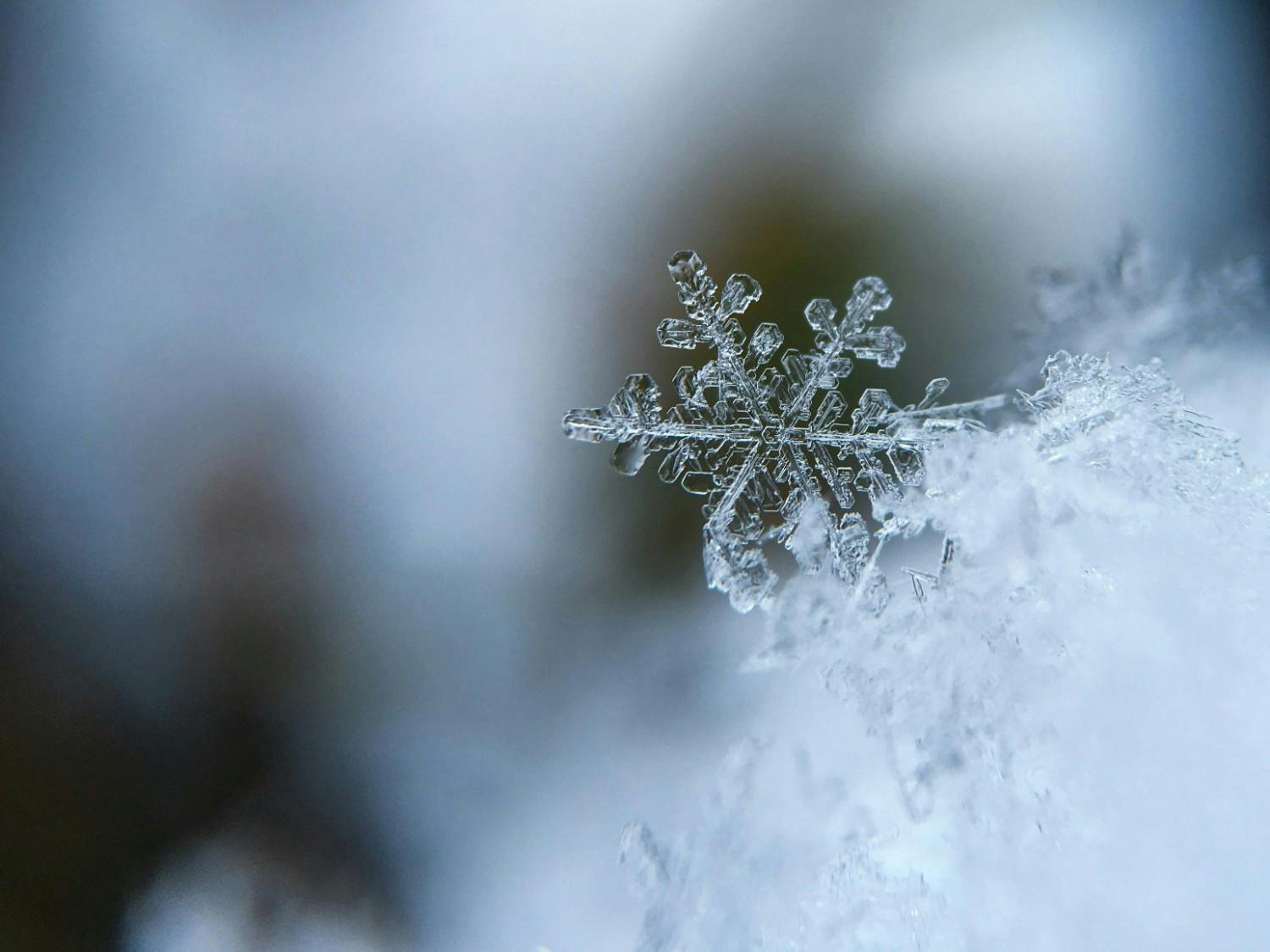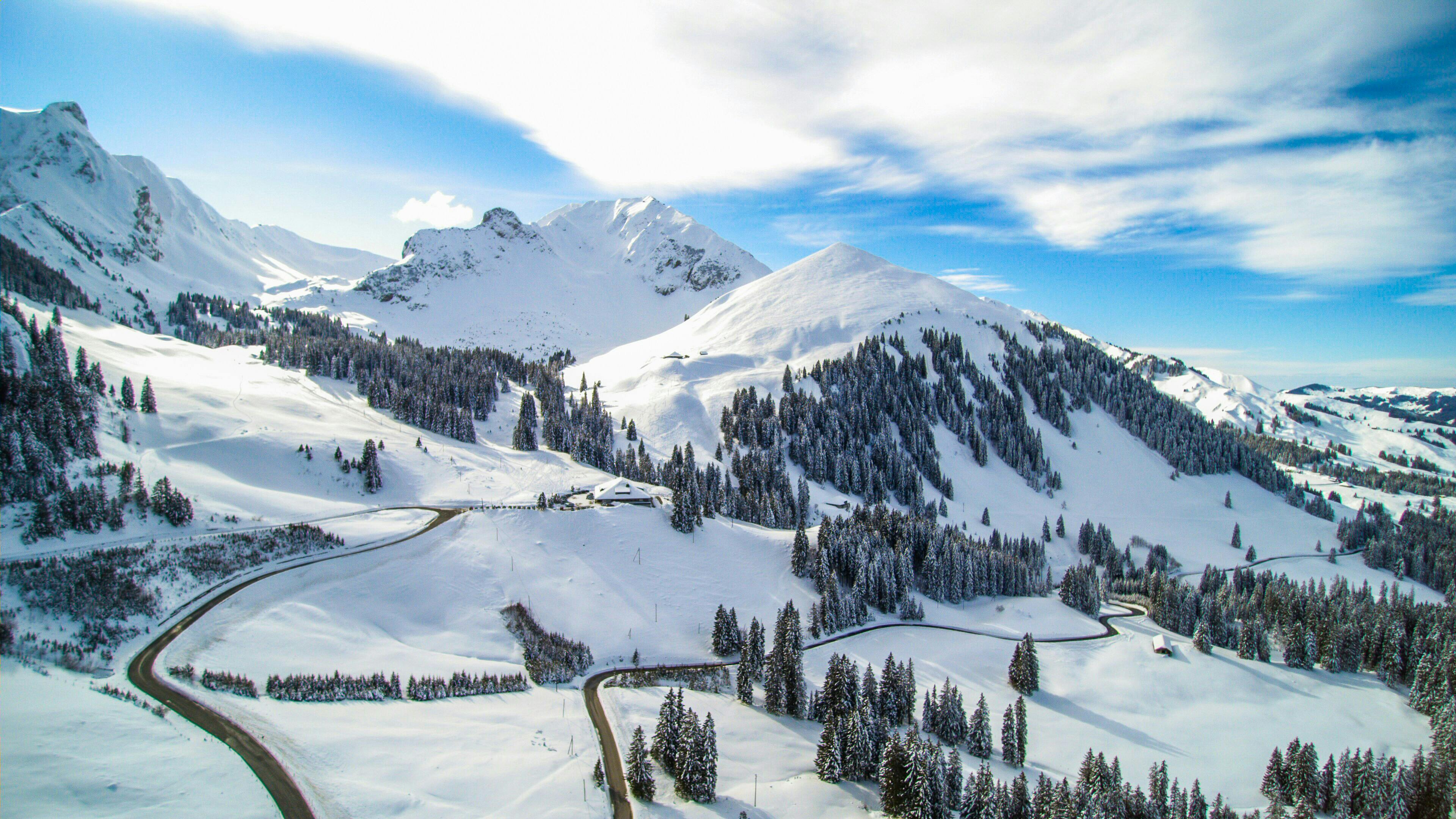- Ski.com Home
- Blog
- Can you smell snow? Understanding the science of winter’s scent
Can you smell snow? Understanding the science of winter’s scent

“I smell snow!” Any devoted Gilmore Girls fan will instantly recognize this phrase as Lorelai’s signature line, a whimsical, joyful exclamation that pops up throughout the TV series whenever winter is near. Lorelai’s enthusiasm captures the same thrill that hits anyone who has felt that first crisp bite of a ski morning. She’s not the only Hollywood star that mentions this phenomenon: the cult classic ski movie Aspen Extreme immortalizes the same sensation when protagonist TJ Burke inhales the cool autumn air and says to Robin Hand, “Smell that? Winter’s coming.”
Related: 8 Ski Resorts With Reliable Early-Season Opening Dates
For skiers and riders, it’s the scent that evokes epic chairlift rides, the thrill of untouched powder and legendary runs through Jackson Hole or Breckenridge. But it leaves us wondering: can you really smell snow? And what is it about that crisp, clean scent that captivates us? Science has some fascinating answers, and each one reveals why the aroma of winter is so irresistible. According to olfactory scientist Pamela Dalton via Reader’s Digest, the smell of snow comes down to 3 factors: cold weather, humidity and a complex nerve in your brain.
The Chemistry of Cold: What Does Snow Smell Like?
Believe it or not, you can smell snow. The main reason humans can pick up on the smell of winter is not because there is a new scent coming into our olfactory system, but actually, quite the opposite – it’s the lack of scent. During warmer months, plants release abundant volatile compounds, also known as essential oils, that evaporate easily and fill the air with fragrance. That’s why summer meadows and alpine blooms smell so vivid. But as temperatures drop, plants slow production, and the familiar rush of floral and herbal aromas fades. With fewer competing scents, your senses notice the subtle, clean, almost intangible scent of winter itself.
As temperatures begin to cool in the fall, air molecules, including oxygen, hydrogen, nitrogen, methane, and others, begin to slow down, and aromas don’t diffuse as quickly as they do in warm air. This means that scents do not travel as far as they do in warmer temperatures. So as temperatures cool, air actually loses its potential to carry various aromas. At the same time, many plants release fewer aromatic oils, so there are fewer competing fragrances in the air. This creates a void for our olfactory system and allows our noses to pick up on more subtle scents and sensations: the crispness of the air, the hint of damp earth, the heaviness of humidity and even the faint sense of snow on the horizon.

Humidity
One of the most prevalent (yet subtle) scents in the natural world is that of H₂O – after all, about 71% of the Earth's surface is covered by water. On a snowy day, the air carries that subtle, crisp hint of H₂O everywhere you go. Just like rain, an approaching snowstorm raises the humidity, which helps the flakes fall. But it also awakens your senses: your nose feels warm, slightly damp and ready to notice every nuance of the winter air. Scientists suggest that this heightened sensitivity, combined with fewer competing scents, is what gives us the iconic “smell of snow.” But the experience isn’t just about smell. There’s a final, surprising response in your nervous system that helps make the aroma of winter feel truly alive (and it is, in fact, not technically connected to the olfactory system at all).
Your Trigeminal Nerve (aka Cranial Nerve V)
When you breathe in crisp, cold mountain air, your nervous system springs into action, and one key player is the trigeminal nerve. While it isn’t technically part of the olfactory system, it adds a unique layer to how we experience the world around us, providing a sensory counterpoint to what we might otherwise interpret as just a simple scent. This fascinating nerve is the most complex in the body, linking taste, smell and even touch in ways that scientists are still unraveling. Typically, it responds to sharp, tingling sensations: think mint, spice or the bite of winter air. The result? A subtle yet visceral reaction that makes the aroma of a snowy day feel alive, vibrant and unmistakably winter.
So there you have it. Chemistry, humidity and the human nervous system all work in tandem to literally create an “aroma” for something that is otherwise not smelly at all.
Ready to breathe in the crisp, exhilarating scent of snow for yourself? Let our Mountain Travel Experts book your perfect ski getaway, handling every detail from lift tickets and cozy lodging to travel and gear rentals. We’ll show you how to score the best deals and find the freshest powder stashes. Start your adventure today with a free custom quote and get ready to hit the slopes.
TAGGED: fresh snow

Melissa Szaro
Author
Latest blogs
View AllHow Our Free White (Ski) Glove Service Works:
Reach out to a Ski.com Mountain Travel Expert by phone, chat, or our online form. Share details about your group size, interests, and budget and your Expert will begin to craft your dream ski vacation.
Get a curated proposal with personalized suggestions from your Expert via email. Book directly online or request additions or revisions from your Expert until it’s perfect.
If you have questions, want to add or modify your reservations or need anything assistance, your Expert is always by your side to help before, during and after your trip.
Sign up for our newsletter
Sign up for exclusive offers, news, updates and more.




